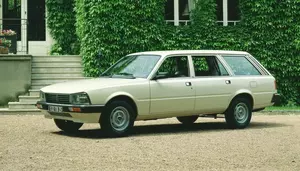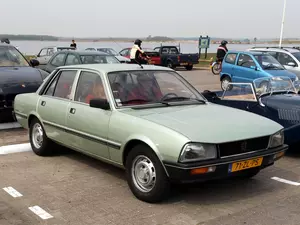
| Vehicle | Curb weight | Difference from world's smallest | Weight to power ratio | 0—60 mph acceleration ratio | Consumption ratio |
|---|---|---|---|---|---|
| 2.2 |
1340 kg / 2955 lbs |
915 kg (2018 lbs) heavier | 12 kg to 1 hp | 110 kg/s (243 lbs/s) |
137 kg/L (302 lbs/L) |
| 2.0 |
1300 kg / 2867 lbs |
875 kg (1930 lbs) heavier | 13 kg to 1 hp | 107 kg/s (236 lbs/s) |
144 kg/L (318 lbs/L) |
| 2.5 Diesel |
1375 kg / 3032 lbs |
950 kg (2095 lbs) heavier | 18 kg to 1 hp | 74 kg/s (163 lbs/s) |
153 kg/L (337 lbs/L) |
| Vehicle | 2.2 |
|---|---|
| Curb weight |
1340 kg / 2955 lbs |
| Difference from world's smallest | 915 kg (915 lbs) heavier |
| Weight to power ratio | 12 kg to 1 hp |
| 0—60 mph acceleration ratio | 110 kg/s (243 lbs/s) |
| Consumption ratio |
137 kg/L (302 lbs/L) |
| Vehicle | 2.0 |
| Curb weight |
1300 kg / 2867 lbs |
| Difference from world's smallest | 875 kg (875 lbs) heavier |
| Weight to power ratio | 13 kg to 1 hp |
| 0—60 mph acceleration ratio | 107 kg/s (236 lbs/s) |
| Consumption ratio |
144 kg/L (318 lbs/L) |
| Vehicle | 2.5 Diesel |
| Curb weight |
1375 kg / 3032 lbs |
| Difference from world's smallest | 950 kg (950 lbs) heavier |
| Weight to power ratio | 18 kg to 1 hp |
| 0—60 mph acceleration ratio | 74 kg/s (163 lbs/s) |
| Consumption ratio |
153 kg/L (337 lbs/L) |

| Vehicle | Curb weight | Difference from world's smallest | Weight to power ratio | 0—60 mph acceleration ratio | Consumption ratio |
|---|---|---|---|---|---|
| 1.8 |
1215 kg / 2679 lbs |
790 kg (1742 lbs) heavier | 14 kg to 1 hp | 88 kg/s (194 lbs/s) |
146 kg/L (322 lbs/L) |
| 2.0 |
1300 kg / 2867 lbs |
875 kg (1930 lbs) heavier | 13 kg to 1 hp | 107 kg/s (236 lbs/s) |
133 kg/L (293 lbs/L) |
| 2.2 i |
1340 kg / 2955 lbs |
915 kg (2018 lbs) heavier | 12 kg to 1 hp | 110 kg/s (243 lbs/s) |
137 kg/L (302 lbs/L) |
| 2.5 Diesel |
1280 kg / 2822 lbs |
855 kg (1885 lbs) heavier | 17 kg to 1 hp | 75 kg/s (165 lbs/s) |
142 kg/L (313 lbs/L) |
| Vehicle | 1.8 |
|---|---|
| Curb weight |
1215 kg / 2679 lbs |
| Difference from world's smallest | 790 kg (790 lbs) heavier |
| Weight to power ratio | 14 kg to 1 hp |
| 0—60 mph acceleration ratio | 88 kg/s (194 lbs/s) |
| Consumption ratio |
146 kg/L (322 lbs/L) |
| Vehicle | 2.0 |
| Curb weight |
1300 kg / 2867 lbs |
| Difference from world's smallest | 875 kg (875 lbs) heavier |
| Weight to power ratio | 13 kg to 1 hp |
| 0—60 mph acceleration ratio | 107 kg/s (236 lbs/s) |
| Consumption ratio |
133 kg/L (293 lbs/L) |
| Vehicle | 2.2 i |
| Curb weight |
1340 kg / 2955 lbs |
| Difference from world's smallest | 915 kg (915 lbs) heavier |
| Weight to power ratio | 12 kg to 1 hp |
| 0—60 mph acceleration ratio | 110 kg/s (243 lbs/s) |
| Consumption ratio |
137 kg/L (302 lbs/L) |
| Vehicle | 2.5 Diesel |
| Curb weight |
1280 kg / 2822 lbs |
| Difference from world's smallest | 855 kg (855 lbs) heavier |
| Weight to power ratio | 17 kg to 1 hp |
| 0—60 mph acceleration ratio | 75 kg/s (165 lbs/s) |
| Consumption ratio |
142 kg/L (313 lbs/L) |